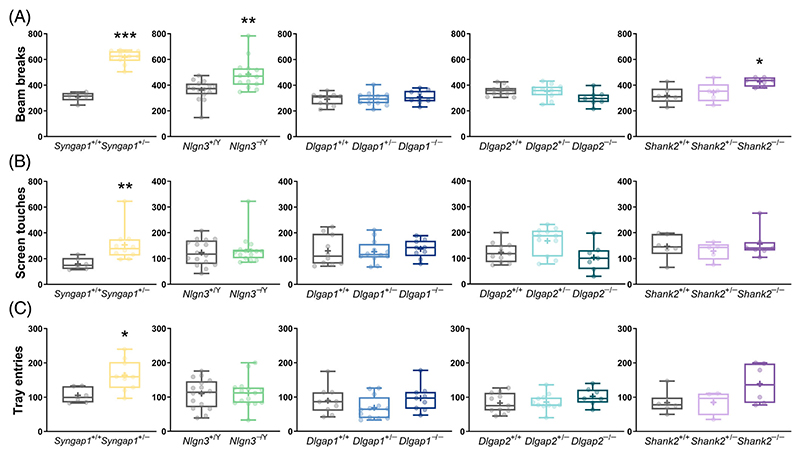Figure 1. Spontaneous locomotor activity during habituation to the touchscreen chambers in mice with loss-of-function mutations in Syngap1, Nlgn3, Dlgap1, Dlgap2, Shank2 and their corresponding wild-type (WT) littermates.
(A) Total numbers of beam breaks, (B) screen touches and (C) reward magazine entries. Data are presented as box-whisker plots (middle line: median; box: 25th and 75th percentiles; cross: mean value; whiskers: smallest and largest values). Significant differences (mutant mice compared with respective WT littermates) are shown as follows: *p < 0.05; **p < 0.01; ***p < 0.001. Each p-value for the overall genotype effect was corrected for multiple comparisons using the Holm–Šídák method. +/− heterozygous, −/Y hemizygous, −/− homozygous, +/+ WT

